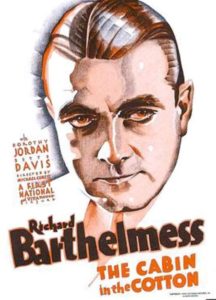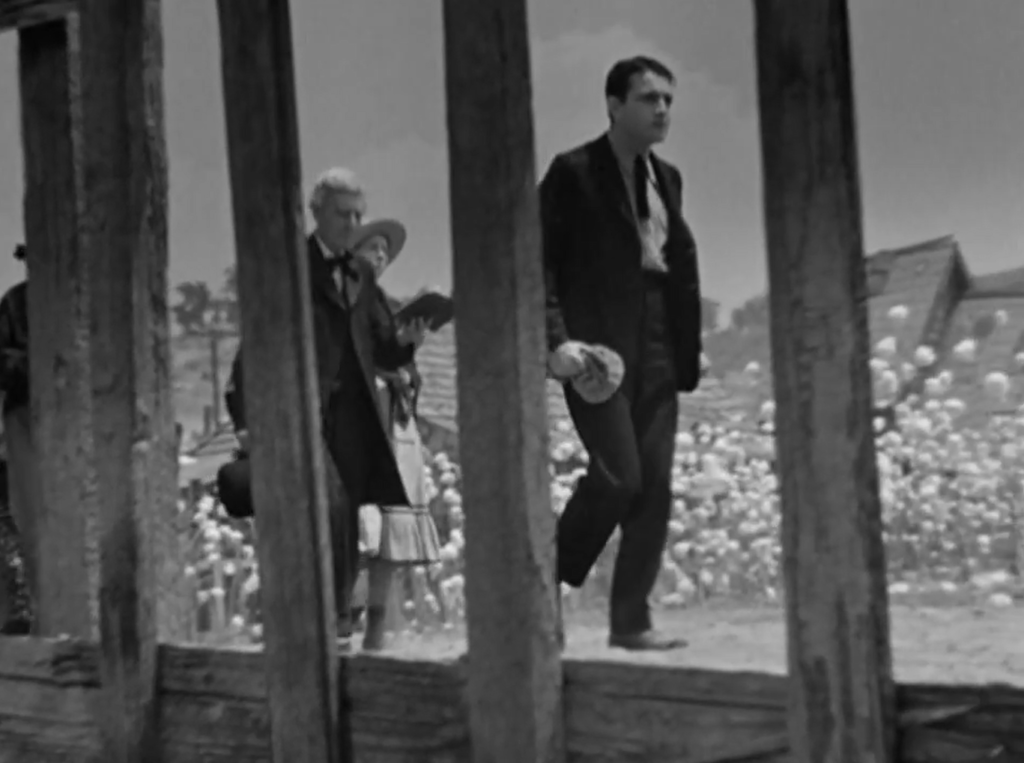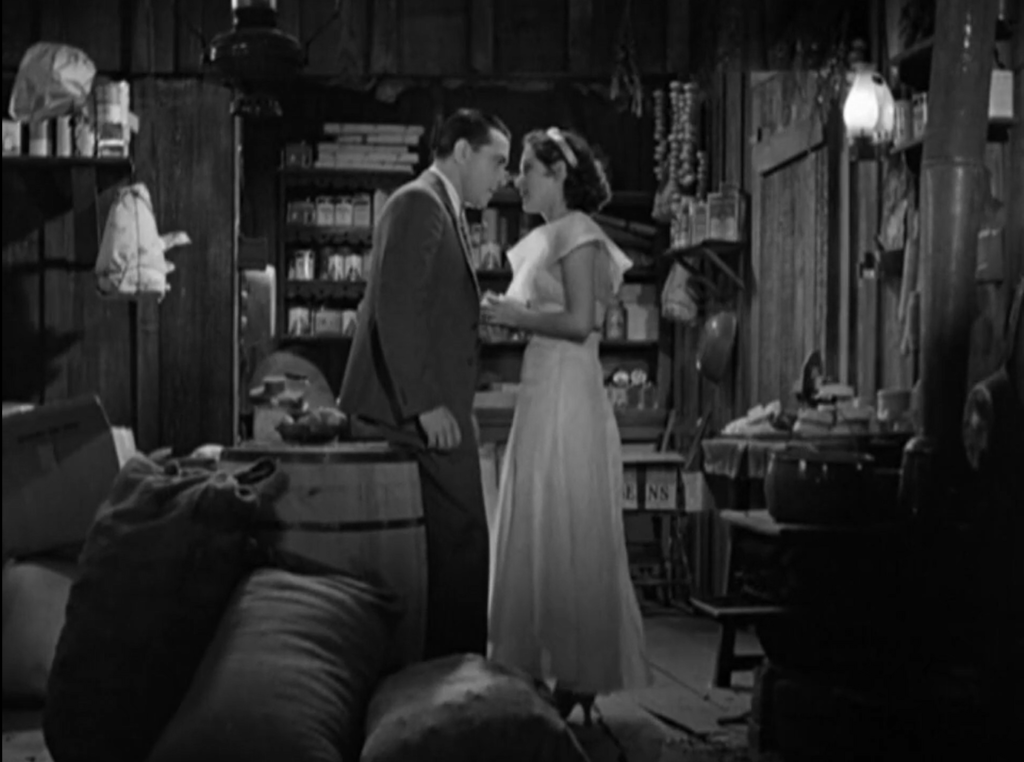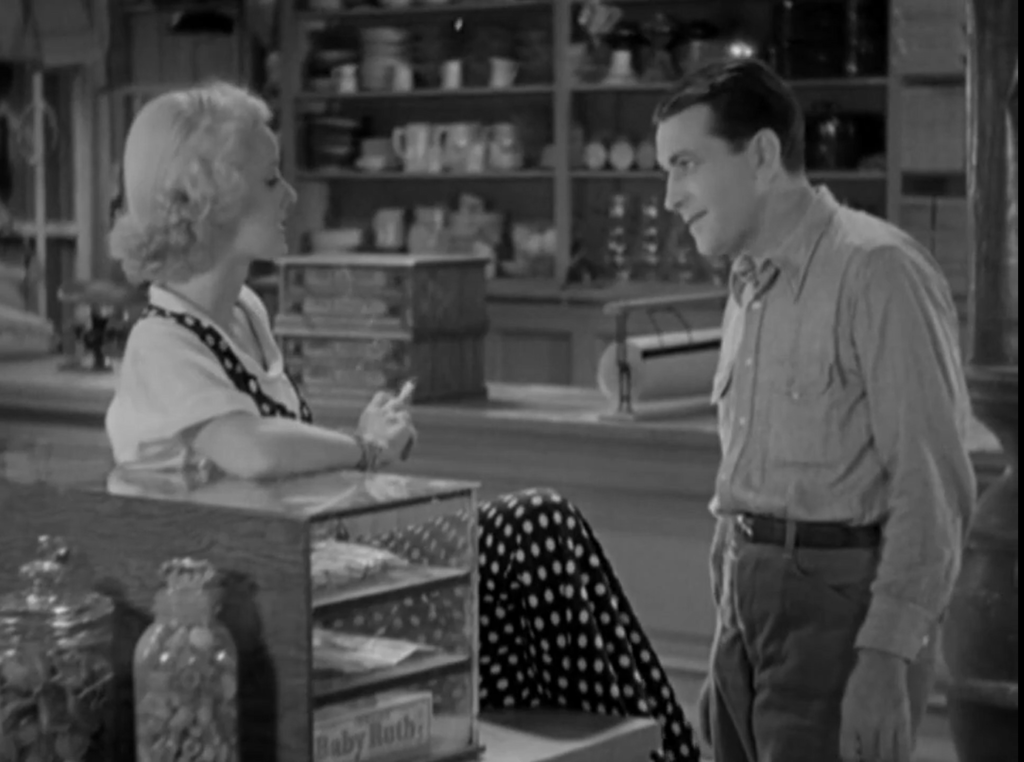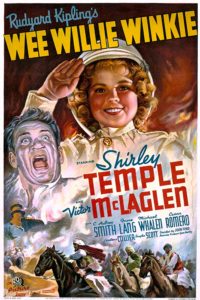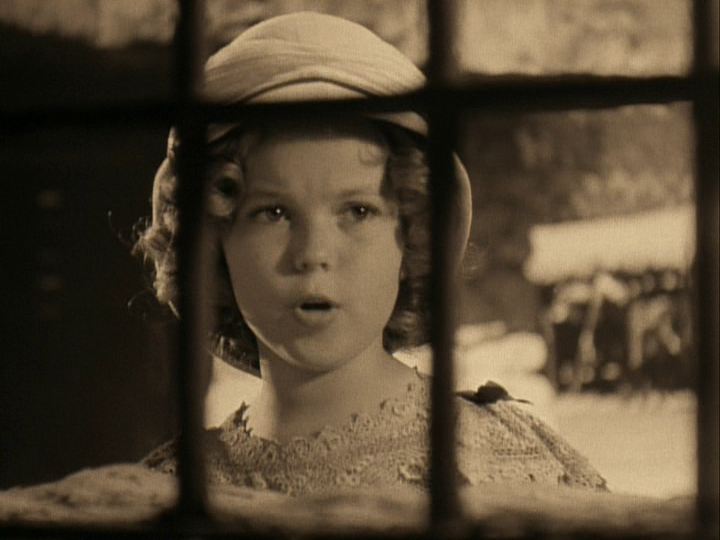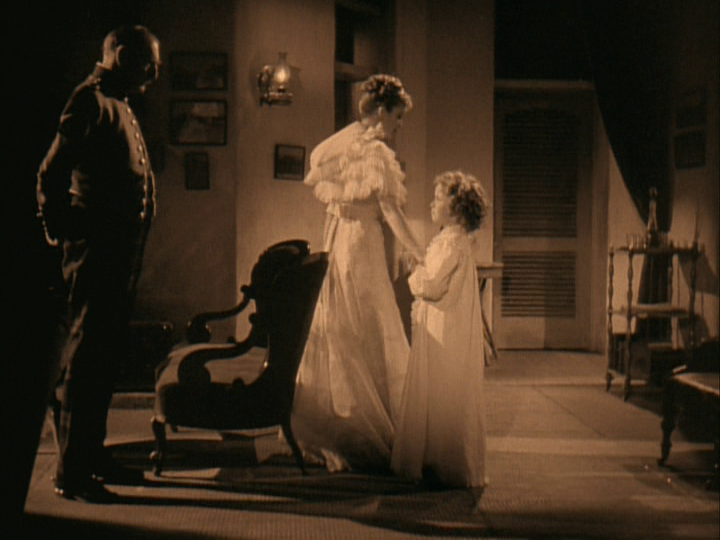Cabin in the Cotton, The (1932)
“You’re sort of on the planters’ side now, and we’re the people who keep the country going.”
|
Synopsis: |
|
Genres, Themes, Actors, and Directors:
Review: The storyline itself is an old but still-valid one of class conflict in a working town with — surprise, surprise — the owners of a cotton plantation taking systemic advantage of their employees to the point of generational destitution. Racial issues are notably muted; this is about whites versus whites, with Barthelmess literally a malleable pawn passed back and forth between two equally icky social groups. Of course, we’re meant to sympathize with the put-upon workers, who turn to theft and arson out of desperation — but it doesn’t help that they’re played (in several notable instances) as backwoods caricatures. Barthelmess’s performance is as wooden as they come, and we don’t learn enough about his hometown sweetheart (Dorothy Jordan) to root for their success as a couple. Davis really does stand out as the notable feature of this film; she would go on to be nominated for an Oscar two years and 12 films (!) later in Of Human Bondage (1934). Redeeming Qualities and Moments: Must See? Links: |
